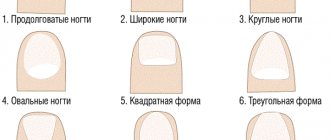Marriage concept
There is no article in the Family Code that directly contains the concept of marriage.
However, based on the principles mentioned by law, the following definition can be formulated. Marriage is a union between a man and a woman, entailing the emergence of personal and property rights and obligations, based on voluntariness and equality. His goal is to create a family.
The following conclusions follow from this:
- in Russia, same-sex marriages are not registered, as well as with animals or objects;
- husband and wife are equal partners, that is, neither of them has privileges before the law;
- after the marriage is registered, the resulting property and debt obligations will be shared;
- the principle of voluntariness implies that every person has the right to marry whomever he wishes, and no one should influence this choice;
- starting a family should be a fundamental desire (not any benefits).
The concept of “civil marriage” from the point of view of the law is precisely a legalized relationship in the registry office, and not the colloquially accepted definition of “cohabitation”. And no matter how many years a couple lives together, such relationships do not give rise to legal consequences.
Church (religious) marriage
This type of marriage also does not have official force in our country. A man and a woman get married in a church (Muslims perform nikah) or perform other ritual actions associated with a particular religion. In this case, it is believed that the union is sealed by the Lord (Allah) himself .
Popularly, this marriage is also called civil marriage, or more simply cohabitation.
In some Muslim countries, religious marriage has official force. In addition, Islam allows polygamy - that is, a man enters into a union not with one woman, but with several.
Let us note that Christians consider any sexual relationship that arose without the sacrament of marriage to be adultery - that is, an officially concluded marriage is not considered marriage from the point of view of the church. The clergy can even refuse to baptize a child, since he has become the fruit of sin. And vice versa - if a couple got married in a church, then in the secular world this has no legal force.
Church marriage
Age required for marriage registration
The generally accepted “age of marriage” is 18 years. This is also the age of full legal capacity.
However, you can get married at the age of 16. But to do this, you must apply for permission from the local government, confirming the presence of valid reasons.
The most common reasons for lowering the marriageable age:
- Expecting a common child;
- Or his birth;
- Already established family relationships.
It is worth noting that parental approval for minors is not required.
In some constituent entities of the Russian Federation, it is possible to get married before the age of 16.
But for this you will need to submit an application to the central executive body addressed to the Governor. This can be done both by those wishing to get married and by their parents. But if there is a conflict between them, then this application will be considered only after the approval of the guardianship and trusteeship authorities.
For example, in Moscow and the region, the governor will give permission for registration provided that the bride is pregnant, has a common child, and also if there is a threat to the life of any of the future spouses.
The minimum age at which the registry office will accept an application is not established by law. But, based on the fact that the list of required documents includes a citizen’s passport, we can conclude that this threshold is 14 years.
Young people who get married before reaching the age of 18 become absolutely capable (emancipation occurs) and do not lose this status even after the divorce.
Marriage between special categories of citizens
Marriage with foreigners
Citizens of Russia can marry citizens of other states, provided that registration is carried out in the civil registry office on the territory of the Russian Federation. A marriage performed according to a religious rite has no legal force.
If a foreigner is a citizen of several states, then the conditions for marriage are determined by him according to the legislation of any country of his choice . If a foreigner has citizenship of the Russian Federation, then the marriage is carried out according to local laws.
If the spouse is a citizen of a country where polygamous marriages are allowed (countries of the Muslim world, for example, Algeria, Egypt, Syria, etc.), then the registry office will refuse to register the marriage , since this contradicts the principle of monogamy. Confirmation will be required that the spouse is not married. If a Russian citizen enters into a polygamous marriage with a man according to the laws of his country on the territory of another state, then it should be remembered that in Russia such a marriage will be considered invalid .
Documents required for submission to the registry office:
- A joint statement from the bride and groom (in some cases, two separate statements are acceptable).
- Passports or other identification documents.
- Permission from an authorized government agency or parents (for citizens of some countries).
- Depending on the situation, a certificate of divorce from a previous marriage or a death certificate of a spouse.
- For a foreigner - certificates from the place of residence confirming that there are no circumstances preventing marriage (this concerns the issue of reaching marriageable age).
- For minors - permission to marry.
Documents must be translated into Russian and notarized . Certified translations must have an apostille. The second option for checking documents is to undergo consular legalization. Citizens of Ukraine and Belarus (parties to the Minsk Convention) are exempt from this procedure.
Marriage to a foreigner or foreigner causes envy among many and opens up many opportunities: the right to stay in the country on preferential terms, the right to work and freely move around the country, etc. But it is necessary to take into account all the legal nuances , because otherwise the problems with the law will double.
Registration of marriage with persons serving sentences
Registration is carried out in places of deprivation of liberty by local civil registry offices. If one of the future spouses is serving a disciplinary sentence, marriage is possible only after serving the established sentence.
Between seriously ill spouses
If the bride or groom is seriously ill, authorized employees of the registry office carry out on-site registration at home or in a hospital, provided that the bride and groom are present.
Right to marriage
Absolutely all citizens of the Russian Federation (subject to the necessary conditions) can be registered as spouses. This simple rule follows from the principles enshrined in the Family Code.
If applicants are denied because of their nationality, race, or religion, this will indicate discrimination, and they can go to court for protection.
Conditions and procedure for marriage
Marriage registration takes place at the civil registry office (registry office), in a formal or ordinary setting - at the choice of the spouses.
The bride and groom must be present at the wedding in person - this is a mandatory condition necessary to confirm the voluntariness of the decision.
There are situations in which a civil registry office employee will register outside the walls of the institution:
- when one of the future spouses is in the hospital or at home due to illness;
- when marriage is concluded with a citizen sentenced to imprisonment (or in custody).
The law does not provide for other reasons for exit registration.
The conditions for marriage are simple:
- persons wishing to legitimize the union act voluntarily;
- they have reached the required age;
- there are no obstacles.
Time and place of registration
The date that applicants can choose to register their marriage must be no earlier than one month and no later than twelve months after submitting the application. The newlyweds also indicate the desired time of registration (based on the working hours of the registry office). It is impossible to change them in the future without the permission of the head of the registration authority.
But there are a number of special life circumstances that speed up registration, without the expiration of a month:
- pregnancy;
- birth of a child;
- if the life and health of any of the parties is threatened.
And if necessary, you can “sign” on the day of submitting the application.
The place of marriage will be the registry office to which the spouses’ application was submitted. Newlyweds have the right to choose absolutely any registry office, without reference to the area in which they are registered.
Circumstances preventing marriage
There are a number of reasons why you can't get married
There are four circumstances in the law in which refusal to accept an application for marriage registration will be lawful:
- Any of the applicants is already officially married. This clause of the law says that the principle of monogamy operates in the country.
- Close family relationships. That is, a union between close relatives and between brother and sister (even half-siblings) is impossible. Thus, incest is prohibited by law.
- The relationship between the adoptive parent and the adopted child also cannot be legitimized. Because the state equates them to blood relatives.
- If one of the future spouses has the status of incapacitated due to a mental disorder.
A person who is unable to account for his actions and decisions cannot get married, even with the permission of his guardian. Because the voluntariness of this act will be in doubt.
For what reasons is it impossible to get married?
The Family Code establishes the following reasons why marriage is impossible:
1) If one of the persons entering into marriage is in a registered marriage. bigamy is prohibited in Russia , since the law establishes the principle of monogamy, that is, monogamy.
2) Between blood relatives:
- in an ascending straight line between parents and children;
- in a descending direct line between grandparents and grandchildren;
- between half- and full-blooded brothers and sisters: children from a common father are considered half-blooded, and children from a common mother are considered half-blooded.
The reason for the ban is not only the possibility of transmitting genetic hereditary diseases and the birth of defective offspring in the future, but also in the moral and ethical aspect.
3) Between adoptive parents and adopted children - the absence of a blood connection is not a permissive factor, because by law such relationships are considered related by origin. The ban is based on the moral and ethical aspect .
4) With a person declared legally incompetent due to a mental disorder. This is explained simply: a mentally ill person is not capable of fulfilling civic duties, as well as creating them. If the incapacity of one of the spouses is recognized after the marriage, then it can be declared invalid in court .
The current provisions of the Family Code give legal significance only to a marriage registered in accordance with the law. The registration procedure is prescribed in Article 11 of the Family Code and Chapter 3 of the Civil Status Law. State registration of marriage takes place only in civil registry offices in Russia at the choice of those entering into marriage.
Family rights and responsibilities of spouses
The rights and obligations of spouses are divided into personal and property
Personal non-property rights:
- Right to equality.
- A husband and wife have the legal right to choose their profession, what to do, and where to live. This provision departs from the constitutional principle of equality of all citizens.
- All issues related to the spouses’ children (upbringing, education, etc.) must be resolved together; no one has more privileges in decision-making.
- Relationships within the family should be based on mutual respect and assistance.
- The right to choose a surname
Spouses can leave their premarital surnames, or they can do the following with them: take the surname of the husband or wife as a common one or add the surname of another to their surname. But the latter is impossible if the premarital surname is already double.
If, while married, a person wishes to change his surname (within the framework of Article 19 of the Civil Code of the Russian Federation), then this in no way affects the surname of the spouse.
After a divorce, both parties have the right to keep their married surname or restore their previous one.
Video that talks about the rights and responsibilities of spouses:
Property rights of spouses
Property rights are divided into two types: legal regime (joint property) and contractual regime (nuptial agreement).
- Joint property is all income of persons that does not have a special purpose, received during the marriage. As well as any property purchased with this money (real estate, securities, shares in capital, etc.).
- A marriage contract defines property rights and obligations during the marriage or in the event of its dissolution. It may contain provisions relating to present and future property.
Marriage - what is it and what types of marriage exist?
Marriage (marital union) - in the Russian Federation, this is the union of a man and a woman, registered in a special register of civil status records (ZAGS).
The clause about the Russian Federation is not accidental; at the beginning of 2021, same-sex marriages are allowed in 27 states, and in some - a union between one woman and several men, or between one man and several women.
As a rule, in all countries, marriage relations are regulated by the state.
This means that the conditions for marriage, the conditions for its dissolution, the rights and obligations of spouses in relation to each other and to children born in marriage are prescribed at the legislative level. In the Russian Federation, such a set of legislative acts is the Family Code (FC) of the Russian Federation.
A man who gets married is called a husband (spouse), and a woman is called a wife (wife).
Briefly about what types of marriage still exist :
- civil marriage. This is a relationship between a man and a woman running a joint household without official registration of this relationship in the registry office. You can read more about the features of this type of marriage in another article on our blog;
- church marriage. This is a marriage union, consecrated by the church during special rituals. In some countries it is official. The Russian Federation is a secular state, therefore church marriage is not recognized as official ;
- polygamy (polygyny) – marriage between one man and several women (does not officially exist in the Russian Federation);
- polyandry (polyandry) - a union of one woman with several men (not in the Russian Federation).
And a few more words about the marriage union, which is officially concluded, but not for living together and running a household, but for achieving other goals. For example, to accept citizenship of another country, to receive an inheritance, etc. Such a marriage is called fictitious .
In the Russian Federation it is considered invalid; the fictitiousness of the marriage is proven by the court (Article 27 of the Family Code).
Legal consequences of marriage
The main consequences of registering a marriage:
- It does not matter in whose name the property is registered and who paid for it, it will be considered jointly acquired. And will be divided equally in case of divorce. Unless other rules are provided for in the marriage contract.
- Children born in marriage and three hundred days after its dissolution will be considered common, that is, the spouse will be recorded as the father of the child. To challenge this fact, a judicial procedure will be required.
- Material support.
- The spouse belongs to the first line of heirs.
Alimony can be demanded from his spouse (and ex) by the person who:
- Is disabled and in need;
- Provides care for a common child until he reaches the age of three and a pregnant wife;
- Provides care for a disabled child until he or she reaches the age of 18;
- Reached retirement age.
A marriage is considered registered from the moment
I'm sorry, Anna, but you didn't understand my question. The fact is that we took advantage of the benefit and got on the waiting list for kindergarten in October 2015, but my husband, due to his length of service, retired 10 months later. At work, they explained to us that at the time of being put on the waiting list, my husband was an active employee of the state fire service and therefore the benefit is valid, despite the fact that he retired. On May 1, 2017, our child received placement in a kindergarten, and today when I came to get a voucher, we were told that we needed confirmation of the benefit, and since my husband is now a pensioner, his benefit is considered lost. That is, the child will not go to kindergarten this year, but will stand in line on a general basis. 283-FZ does not say anything about the loss of benefits, especially since he retired as expected, and was not fired under an article or for misconduct.
Article 1. Subject of regulation and scope of application of this Federal Law
1. This Federal Law regulates relations related to the monetary allowance of employees who have special ranks and serve in institutions and bodies of the penal system, the federal fire service of the State Fire Service and the customs authorities of the Russian Federation (hereinafter referred to as employees), the provision of living quarters, medical support for employees, citizens of the Russian Federation dismissed from service in institutions and bodies of the penal system, the federal fire service of the State Fire Service, customs authorities of the Russian Federation (hereinafter referred to as institutions and authorities), members of their families and persons located (were) on their dependency, as well as providing them with other social guarantees.
(as amended by Federal Law dated July 3, 2016 N 305-FZ)
2. Members of the family of an employee and a citizen of the Russian Federation dismissed from service in institutions and bodies, and persons who are (were) their dependents, to whom this Federal Law applies, unless otherwise established by separate provisions of this Federal Law, are considered:
1) a spouse who is in a registered marriage with an employee;
2) a spouse who was in a registered marriage with the deceased employee on the day of death;
3) minor children, children over 18 years of age who became disabled before they reached the age of 18, children under the age of 23 studying full-time in educational institutions;
(as amended by Federal Law dated July 2, 2013 N 185-FZ)
4) persons who are (were) on the full pay of an employee (citizen of the Russian Federation, dismissed from service in institutions and bodies) or receiving (received) assistance from him, which is (was) for them a constant and main source of livelihood, and also other persons recognized as dependents in the manner established by the legislation of the Russian Federation.
Article 3. Guarantees, benefits and other monetary payments in connection with service
14. Places in general education and preschool educational organizations at the place of residence and in summer health camps, regardless of the form of ownership, are provided on a priority basis:
(as amended by Federal Law dated July 2, 2013 N 185-FZ)
1) children of an employee;
2) children of an employee who died as a result of injury or other damage to health received in connection with the performance of official duties;
3) children of an employee who died as a result of a disease acquired during service in institutions and authorities;
4) children of a citizen of the Russian Federation dismissed from service in institutions and bodies due to injury or other damage to health received in connection with the performance of official duties and excluding the possibility of further service in institutions and bodies;
5) children of a citizen of the Russian Federation who died within one year after dismissal from service in institutions and bodies as a result of injury or other damage to health received in connection with the performance of official duties, or as a result of an illness received during the period of service in institutions and bodies that excluded the possibility of further service in institutions and bodies;
6) children who are (were) dependent on an employee, a citizen of the Russian Federation (here read as a pensioner, based on the subject of regulation of this federal law), specified in paragraphs 1 - 5 of this part.
Marriage in family law
Marriage and family are among such phenomena, interest in which has not waned from the moment of their origin to the present day, which is explained by their versatility and significance in people's lives. Marriage and family are the object of study of various sciences: philosophy, sociology, law, medicine, psychology, etc. Taking into account their focus and specificity, different aspects, characteristics, and properties of these social phenomena are studied. For legal sciences, only those aspects of family life that can be subject to legal regulation are of interest.
The Family Code of the Russian Federation does not contain a definition of marriage. An analysis of the norms of the current RF IC allows us to define marriage as a voluntary and equal union of a man and a woman, aimed at creating a family, subject to mandatory state registration, giving rise to mutual personal and property rights and obligations for them.
The legal characteristics of marriage should include characteristic features that make it possible to most fully reveal its essence.
Legally significant signs of marriage:
»
this is
a union of a man and a woman,
since in the Russian Federation only a union between a man and a woman is recognized and protected by the state.
»
this is
a voluntary
union. To enter into a marriage, the freely and voluntarily expressed mutual consent of the persons entering into marriage is necessary.
»
This is
an equal
union, which presupposes that each spouse in the marriage has equal rights and responsibilities.
»
it is a union concluded
in compliance with certain rules
established by law. Proper registration of marriage is proof of the entry of citizens into a marriage community, which the state takes under its protection. Thus, based on the basic principles of family law, in the Russian Federation marriages concluded only in the civil registry authorities are recognized.
The purpose of marriage is to create a family.
The conclusion of a marriage by persons without the intention of creating a family entails its recognition as invalid.
Marriage gives rise to mutual personal and property rights and obligations
spouses that arise from the moment of state registration of marriage.
The marriage is concluded without specifying the duration of its validity.
Marriage presupposes the mutual desire of the spouses to maintain the marital relationship throughout their lives. However, this does not mean that it is impossible to end a marriage, for example, if the relationship between spouses changes in a negative direction.
Conditions for marriage
- these are the circumstances that must be present for a marriage to have legal force. Their observance indicates the legality of the marriage. Therefore, attaching great importance to the state registration of marriage, the law establishes mandatory conditions for its conclusion.
To get married, the following conditions must be met:
≈
difference (opposite) of the sexes, since marriage can only be concluded between a man and a woman;
≈
mutual voluntary consent of a man and a woman to marry;
≈
reaching marriageable age.
Obstacles to marriage are:
1. Having another marriage.
No one has the right to enter into a new marriage until the previous marriage has ended.
2. Close relationship.
Marriage is not allowed between direct relatives in the ascending and descending lines, without taking into account the degree of kinship, as well as between lateral relatives up to the second degree of kinship: full and half-blooded (having only a father or mother in common) brothers and sisters. The motives for such a ban are both biological and moral and ethical in nature. In many foreign countries, incestuous marriages entail criminal liability. The Criminal Code of the Russian Federation does not provide for such a crime.
There is no prohibition on marriage between collateral relatives of a more distant degree of kinship: cousins (third degree of collateral relationship), uncle (aunt) and niece (nephew) (fourth degree of collateral relationship), etc., as well as between stepchildren brothers and sisters (children of each spouse), since the latter are not related, but rather property.
3. Adoption.
Based on moral and ethical considerations, the adoptive parent and the adopted child cannot enter into marriage (as long as adoption exists), since the adopted child is fully equated by law to the adoptive parent’s own children. At the same time, marriages are allowed between persons who, as a result of adoption, find themselves in the relationship of direct relatives or in the position of brothers and sisters.
4. Incapacity of the person(s) entering into marriage.
A citizen who has been declared incompetent by a court due to a mental disorder (mental illness or dementia) cannot marry. An incapacitated citizen is not able to consciously decide on the issue of marriage; normal family life is impossible with a mentally ill person; children born in such a marriage may also turn out to be mentally handicapped.
Under the form of marriage
means
the method of its conclusion established by law.
The legal form of marriage in Russia is
marriage through state registration
with the registry office.
State registration of marriage has legal significance
: From this moment on, mutual rights and obligations of the spouses arise.
State registration of marriage also has evidentiary value
: on the basis of the completed registration of marriage, spouses are issued a marriage certificate and a corresponding note is made in their passports, certifying the fact that these persons are legally married.
Actual marriage
those. The joint life of a man and a woman without registering a marriage in the manner prescribed by law is a personal matter for each of them and currently does not entail any legal consequences based on the norms of family law. In Russia, actual marriages were recognized as valid along with those registered by the state in the period from 1926 to 1944. The Code of Laws on Marriage, Family and Guardianship of 1926 equated extramarital cohabitation with a registered marriage. This did not mean any cohabitation, but only one that was essentially a real family. To equalize, it was necessary to prove the presence of the following circumstances: living together, running a common household, mutual material support and joint upbringing of children, revealing marital relations to third parties. This provision was abolished by the Decree of the Presidium of the Supreme Soviet of the USSR of July 8, 1944.
Church marriage -
This is a marriage performed according to religious rites. It also has no legal force. The civil (secular) form of marriage, which requires mandatory state registration, was introduced in Russia for the first time after the revolution of 1917 by one of the first decrees - the Decree of the All-Russian Central Executive Committee and the Council of People's Commissars of the RSFSR of December 18, 1917 “On civil marriage, on children and on the introduction of books of civil acts state." Church marriages performed before the adoption of this Decree remained valid and did not need to be re-registered by state authorities. However, since the adoption of the Decree of 1917, marriage was completely removed from the competence of the church.
Currently, the RF IC, as an exception, recognizes the legal validity of church marriages concluded in the occupied territories that were part of the USSR during the Great Patriotic War, until the restoration of registry offices in these territories.
Saving a marriage makes sense only if the spouses had a strong, morally healthy family, based on love and respect, capable of surviving all the hardships that befell it. In some cases, the family ceases to have a beneficial influence on its members and even causes negative reactions. Therefore, family law provides for the possibility of ending a marriage. Under termination of marriage
refers to the termination of registered marital relations between spouses due to the occurrence of certain legal facts.
Such legal facts are the following grounds for termination of marriage
:
◊
death of one of the spouses;
◊
the court declares one of the spouses dead;
◊
divorce at the request of one or both spouses.
Article 17 of the RF IC establishes restrictions on the husband’s right to file a claim for divorce.
The husband has no right to initiate proceedings for divorce without the written consent of his wife during her pregnancy and within a year after the birth of the child.
Russian family law provides for two procedures for divorce - administrative,
involving divorce in the registry office, and
judicial.
However, now the Family Code of the Russian Federation identifies the procedure for divorce in the registry office as the main procedure for divorce, and only in particularly difficult situations does the divorce process take place in court.
A marriage can be dissolved by the civil registry office if two conditions are met:
— mutual consent of the spouses to divorce;
- absence of common minor children.
Divorce in the registry office is also possible with a person convicted of committing a crime to imprisonment for a term of more than three years.
This right can only be exercised by the spouse who is at large. The convicted person himself cannot apply to the registry office with an application for divorce on the grounds that he has been sentenced to a term of more than three years. However, this does not exclude the possibility of divorce in the registry office at the request of the convicted person if there is consent to divorce from the spouse who is at large.
The RF IC provides for the possibility of restoring a marriage
in the event of the appearance of a spouse declared dead by the court or recognized by the court as missing. The appearance or discovery of the location of a citizen recognized by the court as missing or declared dead by the court entails the cancellation of the corresponding court decision.
Restoration of marriage is carried out by the civil registry office. Grounds for restoration
will be:
= joint application of the spouses with a request to restore the marriage;
= a court decision to cancel a previous decision recognizing a citizen as missing or declaring him dead.
The registry office, on the basis of the latest court decision, cancels the entry in the civil register about the death of the person declared dead.
Restoration of marriage is carried out only if the other spouse has not entered into a new marriage.
Nullity of marriage
Family legal relations between spouses during their lifetime may, in addition to divorce, end as a result of the marriage being declared invalid. The law does not define the concept of the invalidity of a marriage, but only indicates the conditions the violation of which entails the invalidity of a marriage.
Nullity of marriage
- this is a form of refusal by the state to recognize a marriage as a legally significant act, expressed in a court decision made in civil proceedings in connection with a violation of the statutory conditions for marriage, which is essentially a measure of protection.
The list in the RF IC of the grounds for declaring a marriage invalid is exhaustive and is not subject to broad interpretation. On the grounds for declaring a marriage invalid
include the following:
›
violation of the conditions of marriage (lack of mutual voluntary consent to enter into marriage, under a vice of will, under duress, deception, with a person who, at the time of registration of marriage, due to his condition, could not account for his actions and manage them, with a person who has not reached marriage age);
›
the presence of circumstances at the time of marriage that prevent its conclusion (condition in another registered marriage; between close relatives, etc.);
›
concealment by one of those entering into marriage from the other of the presence of a sexually transmitted disease or HIV infection;
›
conclusion of a fictitious marriage.
Restoring Marriage
In some cases, the court may recognize an invalid marriage as valid.
Thus, the court can recognize a marriage as valid if, by the time the case on declaring the marriage invalid is considered, those circumstances that, by force of law, prevented its conclusion have disappeared.
Author of the lecture: head. Department of UPD, Ph.D., Associate Professor S.P. Put
[1] The conclusion is presented orally based on the results of the lecture - it is not presented in the notes.
What should marriage be like?
Therefore a man will leave his father and mother and cleave to his wife; and the two will become one flesh (Gen. 2:24).
I confess that my practical knowledge of marriage is rather limited. Because I only had two families. The first one is where I was born, the second one I have already created myself. There were many families in sight, but that didn’t count. The external can be seen from the outside, but the internal is sometimes not always clear even to the family members themselves.
The most important family rule, in my opinion, is to love - to give, not to take. Otherwise, what kind of dubious pleasure is it to use a loved one for your own purposes? The realized opportunity to give oneself, to please loved ones - husband, wife, father, mother, children, brothers and sisters for the good, for their benefit - this is what makes a person happy. There should be no place for selfishness in the family, otherwise no one will see happiness.
“It is said in the Bible that a wife must obey her husband as the Lord,” one Orthodox husband told me, justifying his narcissism and pride.
“Exactly so,” I agreed, “there it is written a little further that a husband must love his wife, just as Christ loved His Church and gave Himself for her (cf. Eph. 5:25). Do you love your wife like that?
The man hesitated, not knowing what to answer.
- Or maybe you love her like your body? My tooth hurt, I took a pill and ran to the doctor. My hand was tired of doing the work - I gave it a rest. I wanted to eat - I ate. It became boring - I had fun. Do you respond to your wife's needs in the same way as you respond to the needs of your body?
The husband silently shook his head.
“Yes, if wives were loved as much as it is written by the Apostle Paul, they would be glad to obey such ideal husbands as God,” I added.
And the Orthodox wife had to be reminded that her husband’s body belongs (just as the husband’s body belongs to his wife), and one can evade communication only by mutual consent, and not as punishment for some kind of grievance.
In the history of human thought it is easy to find two main directions in the doctrine of marriage. The first is realistic: the meaning of marriage is reproduction, the desire to have a continuation of one’s existence. This view is found in ancient Indian, Greek, and Roman laws. Old Testament thinking saw the essence and purpose of marriage also in the reproduction of the family. This was an obvious and necessary sign of God's blessing. Abraham's obedience and faith gave him the promise of abundant offspring: ...by multiplying I will multiply your seed...and in your seed all the nations of the earth will be blessed, because you have obeyed my voice (Gen. 22:17-18). This promise to Abraham explains why the Jews considered a barren marriage a curse. Monogamous and polygamous marriages were normal. Concubinage was sometimes approved as a guarantee of procreation (Gen. 16:1–3). The wife's infertility was even a reason for divorce. In case of infertility of the husband, they resorted to levirate (Gen. 38:8). Monogamy existed as a kind of ideal image, which was never the absolute norm. Therefore, ancient Christian writers believed that almost all of pre-Christian humanity saw offspring as the main purpose of marriage, and explained this by the lack of hope for a future life.
In the New Testament, the understanding of marriage underwent a fundamental change. Nowhere in the Gospel is it mentioned that procreation is the justification for marriage. In itself, it is a means of salvation only when it is accompanied by faith, love and holiness (1 Tim. 2:15). God takes man back to the very beginning, to the Divine plan of creation (Matt. 22:23-32; Mark 12:16-27; Luke 20:27-37), when He laid the foundation for marriage. Adam and Eve were created only for each other. Their union was complete and indestructible. I would even say that they represent the image and symbol of all future marriages. All those who marry are a continuation of Adam and Eve, and their union should be just as intimately inseparable. The ideal of marriage is for two people to find their fullness by joining their lives together. This is an idealistic view. However, Christian writers did not always submit to this trend. In particular, blessed. Augustine argues that there is only one reason for marriage, namely the birth of children, and that where they strive to have no children, there is no marriage. This statement is also considered by later scholastic Western theology. The Eastern tradition is subordinated precisely to the idealistic view. There is a whole layer of patristic literature covering this issue. St. Theophan the Recluse and St. Tikhon Zadonsky, emphasizing that marriage is the secret of unity. A striking example of a virtuous marriage can be found in the correspondence of Tsar Nicholas II with his wife.
Considering marriage a sacrament, the ancient Church did not create any special wedding rite, but recognized a marriage concluded according to the laws of secular society. Until the 9th century. a Christian couple, after registering their marriage, took part in the Eucharist, and this, according to Tertullian, was the seal of the marriage. Since the 4th century, among Eastern Christians this sacrament has been accompanied by a solemn ceremony. At the end of the 9th century. a wedding rite independent of the Eucharist appeared, which can be associated with the strengthening of the legal significance of church marriage. Despite this, it still retains features that indicate its original connection with the Eucharist. This is where the unloved church tradition of the inadmissibility of a second marriage came from. He is merely tolerant out of condescension towards human weakness (1 Cor. 7:9). Moreover, second marriage is not encouraged, even due to widowhood - due to the eternity and indissolubility of marriage. The Church only allows new marriage to avoid fornication. Christian marriage is indissoluble, and this excludes any demagoguery in its interpretation. The union of husband and wife in itself is one of the means to joint salvation, and in no case can it be dissolved for the sake of procreation or the protection of any earthly interests.
Christ's condemnation of divorce is known (cf. Matt. 19:8–9; Mark 10:2–9; Luke 16:18). But the possibility of divorce due to adultery clearly shows that the New Testament does not understand the indissolubility of the marriage bond as an absolute prohibition on human freedom. This freedom presupposes the possibility of sin and its consequences. Ultimately, sin can destroy a marriage. By allowing divorce, the Church explains to people the reasons for divorce and always views it as a serious sin. However, the Church has always been ready to admit those who have sinned into the number of the faithful after repentance. Therefore, remarriages were concluded only through a civil ceremony and provided for repentance with excommunication from Communion for a certain period.
The Bible presents marriage as an expression of ultimate joy and fulfillment. This is the fullness of the triumph of joy and love. Its perfect image is visible in the marriage of the Lamb (Rev. 19:7), that is, in the union, in the joy of the meeting of God, who became man, with creation. The image given in the person of the Bride of the Lamb - the Church of Christ - is an image of perfect love, sacrificial to the end. It is the mutual sacrifice of love that often escapes the attention of Orthodox spouses.
Therefore, the Church today is especially alarmed by the instability of marriages and the grief that this instability brings to both spouses and children. Many Orthodox Christians are concerned about the fragmentation of families and the joylessness of family life. But this happens precisely because the ideal of marriage has turned out to be misunderstood by people. It even happens that some people view marriage simply as a private contract. The lexicon includes the concept of a “marriage contract”, which is based on prudence and cohabitation, where there is no place for either true love or a real marriage made in heaven.
But the main problem, I think, is the perception of marriage as a way of living together only for free sexual satisfaction. The hedonistic understanding of marriage gave rise to the most perverted forms of such cohabitation: harem, Swedish, homosexual families. This type of cohabitation perverts the divine plan for marriage. St. Tikhon of Zadonsk teaches: “Fornication is a poison that kills the soul... He who commits fornication renounces Christ.”
The Church condemns pornography and fornication. But in a legal marriage, the Church recognizes sexual intimacy between spouses, since the physical relations of a man and a woman are blessed by God (Gen. 1:28), and the Church prays for them in the wedding rite. The Church attaches such high importance to marriage as an eternal union, a source of joy and love, as an image of the inseparable unity of Christ and His Church, as a path to the Eternal Kingdom.
- Is it possible to marry an unloved person? - Believers sometimes ask me.
Yes, of course you can! But I would not wish this on either myself or my friends (here I would say “nor enemies”, but I have never had enemies among people). How can you endure voluntary and involuntary grief from a person if you don’t love him? I definitely couldn't.
Archpriest Sergius Adodin
Source: Pravoslavie.ru










